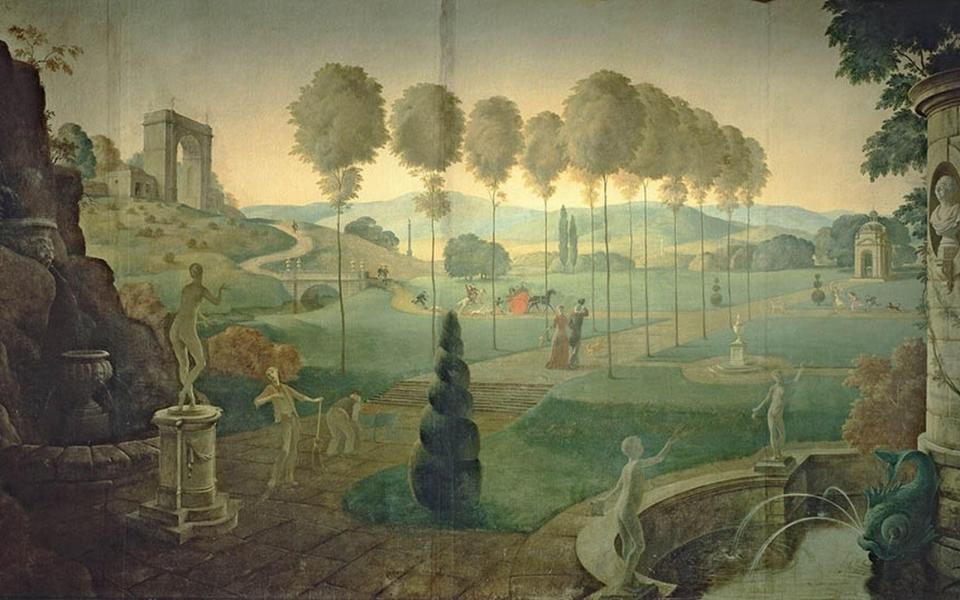Rex Whistler died a hero fighting Nazis – but ‘woke’ activists want to bury his name

One used to lunch in the restaurant at Tate Britain and study the remarkable 1927 mural by Rex Whistler, The Expedition in Pursuit of Rare Meats. Whistler was barely out of the Slade, and just 21, when he began this fantasy, showing people about the same age as the artist going through an imaginary landscape looking for food. Part of the mural’s delight is its sheer romanticism, at odds with the modernism of the time when it was painted.
However, it is now contended that to admire it is racist. In 2020, an outcry orchestrated by two women charmingly calling themselves The White Pube drew attention to a kidnapped black child being pulled along on a string by a young woman, while his mother watches from a tree, and to caricatures of Chinese people.
No one seemed – or wanted – to know about the artist’s motivations. Whistler was no racist, but was known for his mordant wit. He was acutely conscious of the shocking inequalities that stood below the mindless high society of the 1920s, and is clearly satirising them in his painting, much as Evelyn Waugh would soon do in his novels.
Whistler’s art was insulted to the point where, in 2022, the Tate closed the room so the public could not see it. The gallery is a Grade I-listed building and, whether it likes it or not, it could not remove this component of that structure. However, in March it sought to “contextualise” the mural by complementing it with a film that claims to explore “the social and political context of 1920s Britain”.
All this is typical of how creative people from the past are put in the dock of a court set in a land they do not know and tried for “offences” that at the time were nothing of the sort. It makes some today feel better, but it is entirely unhistorical. Incidentally, in reporting the making of the new film, the BBC described the mural as “offensive”, though, unlike me, it did not put that adjective in quotation marks: it had made up its own mind and discarded any shred of objectivity.

Next month, on July 18, falls the 80th anniversary of Whistler’s death, killed in action, in Normandy. Despite being in his mid-30s when war broke out, he was commissioned into the Guards Armoured Division, so determined was he to fight the racists who were then conquering most of Europe. He was killed having left his tank to go to the aid of other men in his unit; apparently, The Times received more letters about his death than for that of any other war casualty. That either shows the extent of support for a racist, or just what a greatly admired artist he was.
The Salisbury Museum in Wiltshire has recently opened an exhibition entitled Rex Whistler: The Artist and His Patrons, which runs until September 29. It takes a more nuanced and less hysterical view of the mural. “We should be wary of censoring or destroying art that does not fit with our twenty-first century values,” says the museum’s director, Adrian Green – and of course he is right. Others who love exhibiting only their self-righteousness should stop showing off.

 Yahoo News
Yahoo News 
